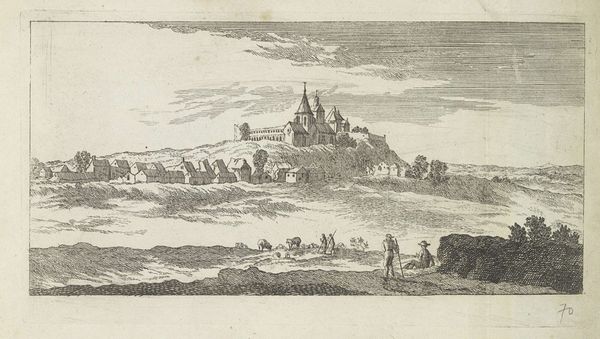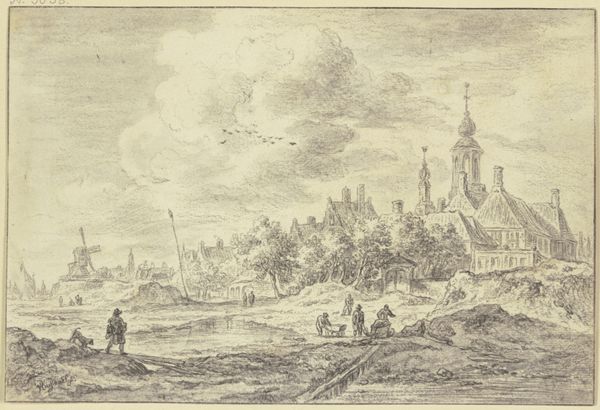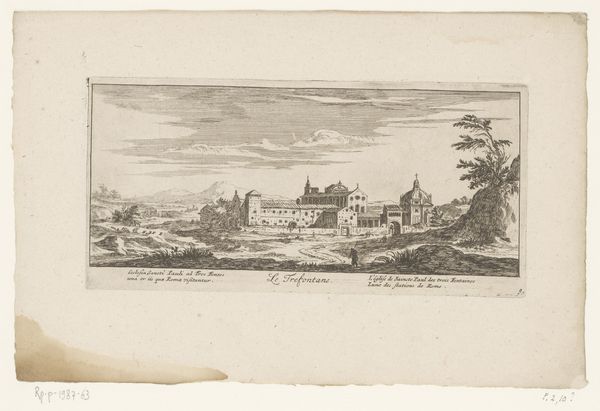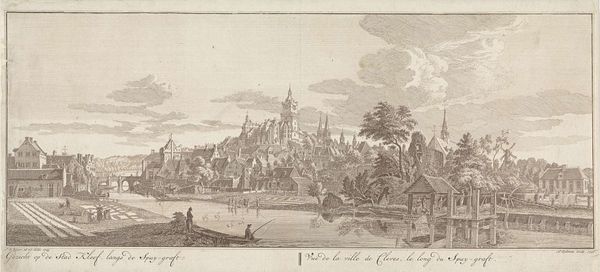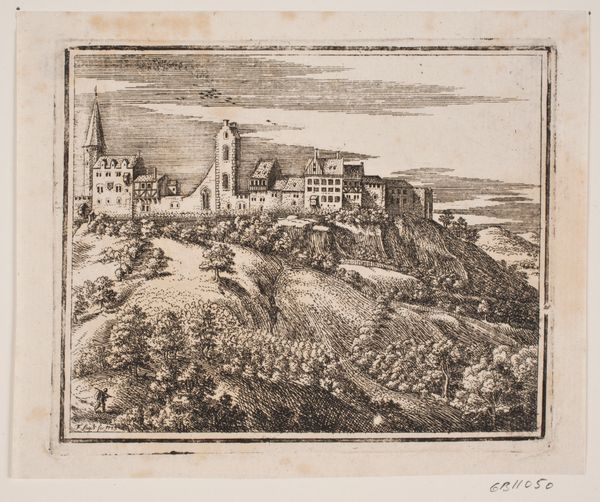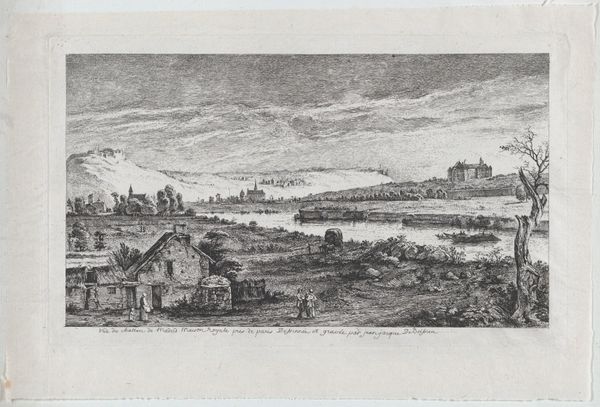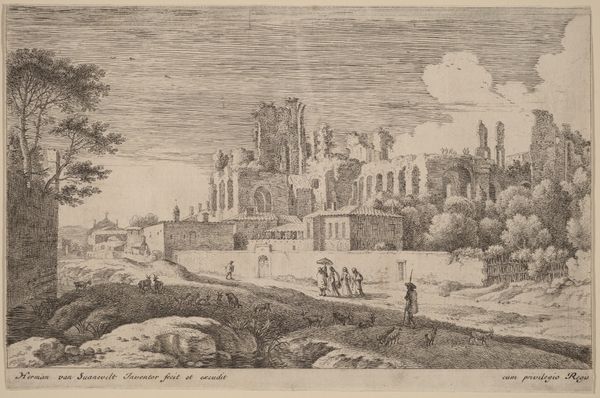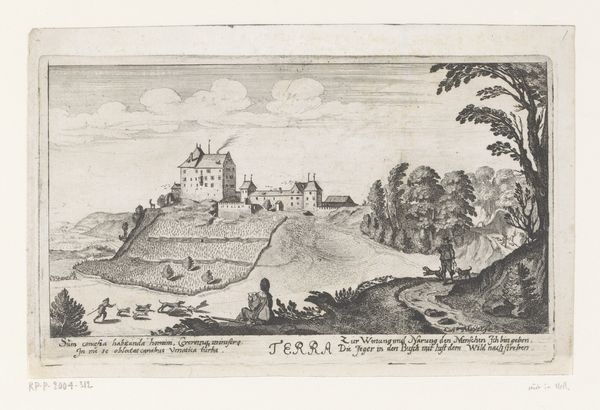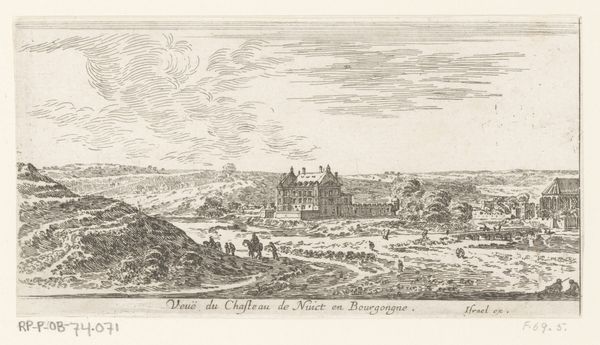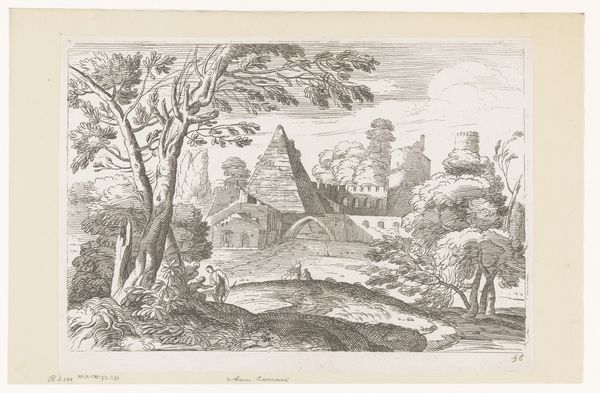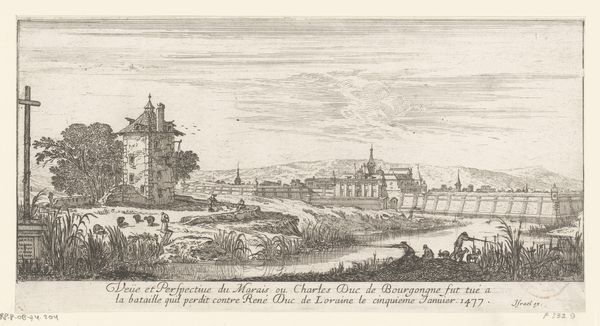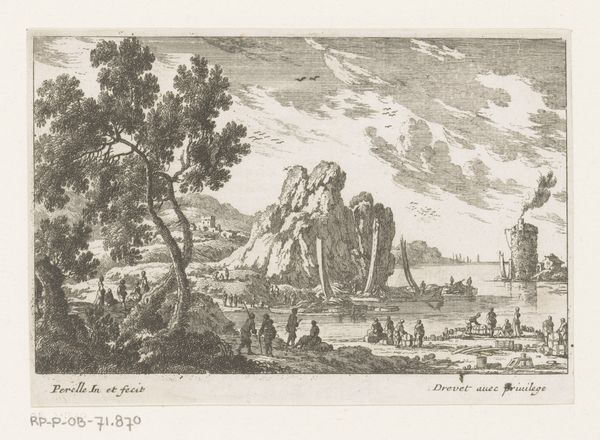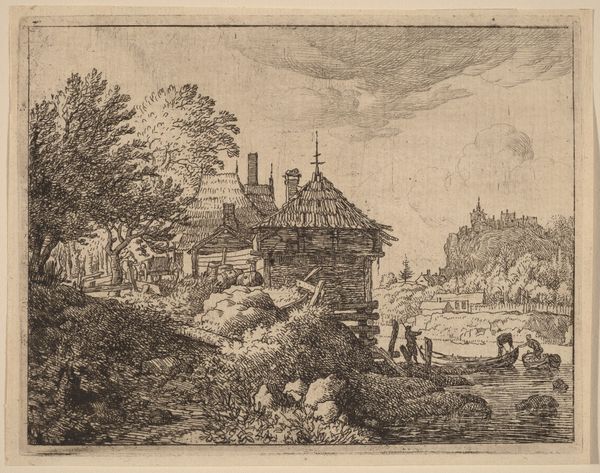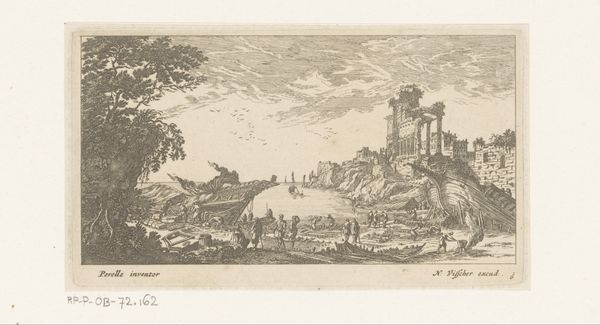
Dimensions: height 150 mm, width 193 mm
Copyright: Rijks Museum: Open Domain
Jan van Almeloveen created this River Landscape with a City View in the Netherlands sometime between 1652 and 1683. It's an etching, a printmaking technique that became incredibly popular in the Dutch Golden Age. Look at the composition. Almeloveen hasn't just shown us a pretty view. He's carefully arranged the scene to highlight the relationship between the land, the water, and the town. The windmill, church, and city buildings perched atop the hill aren't just architectural details; they signify a thriving, industrious society. Consider how the figures are posed and placed in relation to the city on the hill, and the river below. Are they moving towards the city? Is the river a highway to somewhere else? To understand this image, we might explore Dutch economic history. How did the Dutch use their waterways for trade and transportation? What role did windmills play in their economy? By delving into these questions, we can appreciate how this artwork reflects the values and priorities of its time.
Comments
No comments
Be the first to comment and join the conversation on the ultimate creative platform.
